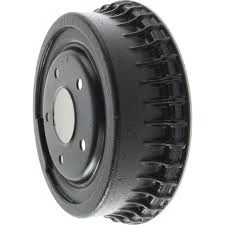
-
 Afrikaans
Afrikaans -
 Albanian
Albanian -
 Amharic
Amharic -
 Arabic
Arabic -
 Armenian
Armenian -
 Azerbaijani
Azerbaijani -
 Basque
Basque -
 Belarusian
Belarusian -
 Bengali
Bengali -
 Bosnian
Bosnian -
 Bulgarian
Bulgarian -
 Catalan
Catalan -
 Cebuano
Cebuano -
 Corsican
Corsican -
 Croatian
Croatian -
 Czech
Czech -
 Danish
Danish -
 Dutch
Dutch -
 English
English -
 Esperanto
Esperanto -
 Estonian
Estonian -
 Finnish
Finnish -
 French
French -
 Frisian
Frisian -
 Galician
Galician -
 Georgian
Georgian -
 German
German -
 Greek
Greek -
 Gujarati
Gujarati -
 Haitian Creole
Haitian Creole -
 hausa
hausa -
 hawaiian
hawaiian -
 Hebrew
Hebrew -
 Hindi
Hindi -
 Miao
Miao -
 Hungarian
Hungarian -
 Icelandic
Icelandic -
 igbo
igbo -
 Indonesian
Indonesian -
 irish
irish -
 Italian
Italian -
 Japanese
Japanese -
 Javanese
Javanese -
 Kannada
Kannada -
 kazakh
kazakh -
 Khmer
Khmer -
 Rwandese
Rwandese -
 Korean
Korean -
 Kurdish
Kurdish -
 Kyrgyz
Kyrgyz -
 Lao
Lao -
 Latin
Latin -
 Latvian
Latvian -
 Lithuanian
Lithuanian -
 Luxembourgish
Luxembourgish -
 Macedonian
Macedonian -
 Malgashi
Malgashi -
 Malay
Malay -
 Malayalam
Malayalam -
 Maltese
Maltese -
 Maori
Maori -
 Marathi
Marathi -
 Mongolian
Mongolian -
 Myanmar
Myanmar -
 Nepali
Nepali -
 Norwegian
Norwegian -
 Norwegian
Norwegian -
 Occitan
Occitan -
 Pashto
Pashto -
 Persian
Persian -
 Polish
Polish -
 Portuguese
Portuguese -
 Punjabi
Punjabi -
 Romanian
Romanian -
 Russian
Russian -
 Samoan
Samoan -
 Scottish Gaelic
Scottish Gaelic -
 Serbian
Serbian -
 Sesotho
Sesotho -
 Shona
Shona -
 Sindhi
Sindhi -
 Sinhala
Sinhala -
 Slovak
Slovak -
 Slovenian
Slovenian -
 Somali
Somali -
 Spanish
Spanish -
 Sundanese
Sundanese -
 Swahili
Swahili -
 Swedish
Swedish -
 Tagalog
Tagalog -
 Tajik
Tajik -
 Tamil
Tamil -
 Tatar
Tatar -
 Telugu
Telugu -
 Thai
Thai -
 Turkish
Turkish -
 Turkmen
Turkmen -
 Ukrainian
Ukrainian -
 Urdu
Urdu -
 Uighur
Uighur -
 Uzbek
Uzbek -
 Vietnamese
Vietnamese -
 Welsh
Welsh -
 Bantu
Bantu -
 Yiddish
Yiddish -
 Yoruba
Yoruba -
 Zulu
Zulu
Feb . 12, 2025 21:00
Back to list
drum brake rust
When it comes to vehicle maintenance, drum brakes often don’t get the attention they deserve. Despite digital advances in automotive technology, drum brakes, primarily found in older models, continue to be essential for a safe driving experience. However, one common issue that affects the performance of drum brakes is rust. Here, we delve into the intricate aspects of drum brake rust, providing expert insights, professional guidance, and sound advice based on authoritative knowledge.
Professional servicing offers a more authoritative remedy. Automotive shops use precision tools and techniques to thoroughly clean, lubricate, and sometimes repaint drum brakes, ensuring they operate at peak performance levels. Should the rust damage be extensive, replacement might be deemed necessary. Although more costly, replacing corroded drum brakes with brand new ones ensures the brake system’s reliability and safety. For those looking to fortify their knowledge, consulting vehicle manuals or accessing reputable automotive websites can be valuable. These resources provide comprehensive details on drum brake maintenance and are often written by seasoned experts in the field. Furthermore, engaging in automotive forums can offer personal anecdotes and advice from fellow car enthusiasts who have tackled rust-related issues. Trustworthiness in handling drum brake rust comes down to combining reliable resources with professional integrity. Opting for high-quality replacement parts, observing the manufacturer's guidelines, and consulting qualified mechanics are crucial steps in ensuring the longevity and reliability of drum brakes. In summation, while drum brake rust might appear as a minor inconvenience at first, its implications on vehicle safety are far-reaching. Adopting a proactive approach in maintenance, combined with expert advice and professional service, guarantees that your vehicle remains in optimal driving condition. With informed vigilance and timely interventions, drum brake rust doesn’t have to sound the death knell for your vehicle’s braking system.


Professional servicing offers a more authoritative remedy. Automotive shops use precision tools and techniques to thoroughly clean, lubricate, and sometimes repaint drum brakes, ensuring they operate at peak performance levels. Should the rust damage be extensive, replacement might be deemed necessary. Although more costly, replacing corroded drum brakes with brand new ones ensures the brake system’s reliability and safety. For those looking to fortify their knowledge, consulting vehicle manuals or accessing reputable automotive websites can be valuable. These resources provide comprehensive details on drum brake maintenance and are often written by seasoned experts in the field. Furthermore, engaging in automotive forums can offer personal anecdotes and advice from fellow car enthusiasts who have tackled rust-related issues. Trustworthiness in handling drum brake rust comes down to combining reliable resources with professional integrity. Opting for high-quality replacement parts, observing the manufacturer's guidelines, and consulting qualified mechanics are crucial steps in ensuring the longevity and reliability of drum brakes. In summation, while drum brake rust might appear as a minor inconvenience at first, its implications on vehicle safety are far-reaching. Adopting a proactive approach in maintenance, combined with expert advice and professional service, guarantees that your vehicle remains in optimal driving condition. With informed vigilance and timely interventions, drum brake rust doesn’t have to sound the death knell for your vehicle’s braking system.
Prev:
Next:
Latest news
-
What Are Drum BrakesNewsJul.07,2025
-
Understanding Brake Drum MaterialNewsJul.07,2025
-
Semi-Trailer Brake Drum: A Key Component for Extreme Loads and Long-Distance TransportNewsJul.07,2025
-
Drum Brake Pads for SaleNewsJul.07,2025
-
Brake Drums for SaleNewsJul.07,2025
-
Brake Drum ManufacturerNewsJul.07,2025
-
Aluminum Brake Drums: The Future of High-Performance CarsNewsJul.07,2025
